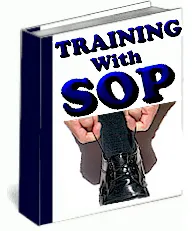Unlock Operational Efficiency with Actionable SOPs
In every organization, there exists a wealth of knowledge, often referred to as “tribal knowledge,” which resides in the minds of experienced employees. This knowledge, gained through years of trial and error, holds the key to operational success. However, relying solely on tribal knowledge poses significant risks, including knowledge loss due to employee turnover and inconsistency in processes. The solution? Transforming tribal knowledge into clear Standard Operating Procedures (SOPs).

Understanding Tribal Knowledge
Tribal knowledge encompasses the undocumented practices, insights, and techniques that employees acquire through experience rather than formal training. While invaluable, tribal knowledge is often scattered, unstructured, and at risk of being lost when key employees leave the organization.
The Importance of SOPs
Standard Operating Procedures (SOPs) are documented guidelines that outline step-by-step instructions for carrying out routine tasks and processes. They provide a standardized approach to operations, ensuring consistency, efficiency, and compliance with regulations. By converting tribal knowledge into SOPs, organizations can capture and preserve valuable insights while minimizing the risks associated with reliance on individual expertise.
Tips for Turning Tribal Knowledge into SOPs
- Identify Tribal Knowledge Sources: Start by identifying key employees who possess valuable tribal knowledge. Conduct interviews, surveys, or workshops to gather insights into their practices and techniques.
- Document Processes Step-by-Step: Work closely with subject matter experts to document each process in detail. Use clear language, visuals, and examples to make the SOPs easy to understand and follow.
- Standardize Procedures: Analyze the documented processes to identify commonalities and best practices. Standardize procedures to ensure consistency across teams and departments.
- Include Troubleshooting Guidelines: Anticipate potential challenges and include troubleshooting guidelines or FAQs to help employees resolve issues independently.
- Regularly Update SOPs: Treat SOPs as living documents that evolve with the organization. Encourage feedback from users and update SOPs regularly to reflect changes in technology, regulations, or best practices.
- Provide Training and Support: Train employees on the use of SOPs and provide ongoing support to address any questions or concerns. Ensure easy access to SOPs through a centralized repository or digital platform.
Benefits of Clear SOPs
- Knowledge Preservation: By documenting tribal knowledge in SOPs, organizations preserve valuable insights even when employees leave.
- Consistency and Efficiency: SOPs provide a standardized approach to operations, ensuring consistency, efficiency, and quality.
- Compliance and Risk Mitigation: SOPs help organizations comply with regulations and industry standards, reducing the risk of errors and liabilities.
- Training and Onboarding: SOPs serve as valuable training materials for new employees, accelerating the onboarding process and reducing ramp-up time.
- Continuous Improvement: Regularly updating SOPs allows organizations to incorporate feedback and improvements, driving continuous process optimization.
Conclusion
In today’s fast-paced business environment, the need for standardized processes and knowledge preservation is more critical than ever. By converting tribal knowledge into clear SOPs, organizations can unlock efficiency, consistency, and resilience. Embrace the tips outlined above to harness the power of SOPs and propel your organization towards success.




